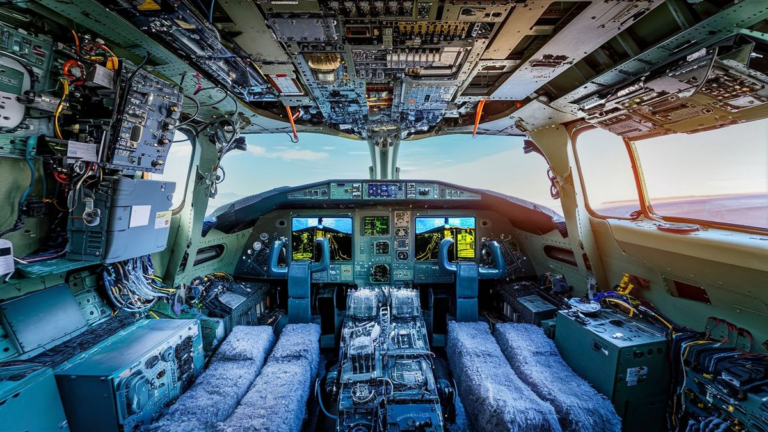When it comes to the aviation industry, the role of aircraft electrical and environmental systems engineers is crucial. These professionals are responsible for designing, maintaining, and troubleshooting the electrical and environmental control systems that are vital for the safe and efficient operation of aircraft.
The Importance of Aircraft Electrical and Environmental Systems Engineers
Within the realm of aviation, aircraft electrical and environmental systems engineers play a pivotal role. They are tasked with ensuring that aircraft have reliable electrical power generation and distribution systems, as well as efficient environmental control systems that regulate temperature, pressure, and air quality within the aircraft cabin.
Salary Insights
Given the specialized nature of their work and the level of expertise required, aircraft electrical and environmental systems engineers typically command competitive salaries. Salaries can vary depending on factors such as experience, level of education, industry sector, and geographic location.
On average, aircraft electrical and environmental systems engineers can expect to earn salaries that are above the national average. According to industry reports and salary surveys, the median salary for professionals in this field ranges from [insert specific salary range or provide link to latest data].
Factors Influencing Salary
Several factors influence the salary potential for aircraft electrical and environmental systems engineers. These factors include:
- Experience: Engineers with more years of experience tend to command higher salaries.
- Education: Advanced degrees or specialized certifications can lead to higher earning potential.
- Industry Sector: Engineers working in sectors such as commercial aviation, defense, or aerospace manufacturing may have different salary ranges.
- Geographic Location: Salaries can vary significantly depending on the cost of living and demand for engineers in a particular region.
Career Growth Opportunities
For those pursuing a career in aircraft electrical and environmental systems engineering, there are abundant opportunities for career growth and advancement. As technology continues to evolve and aircraft become more complex, the demand for skilled engineers in this field is expected to remain strong.
Engineers can pursue further education, specialized training, or certifications to enhance their skills and increase their earning potential. Additionally, leadership roles such as project management or technical management may offer higher salaries and greater responsibility.
In conclusion, aircraft electrical and environmental systems engineers play a vital role in the aviation industry, ensuring the safety and functionality of aircraft electrical and environmental systems. With competitive salaries and ample opportunities for career growth, this field offers a rewarding and promising career path for those with the requisite skills and expertise.
equently Asked Questions
Here are some commonly asked questions regarding aircraft electrical and environmental systems engineers:
| Question | Answer |
|---|---|
| 1. What qualifications are needed to become an aircraft electrical and environmental systems engineer? | Typically, a bachelor’s degree in electrical engineering or a related field is required. Advanced degrees or specialized certifications can also enhance career prospects. |
| 2. How does industry sector impact salary? | Salaries can vary based on whether one works in commercial aviation, defense, aerospace manufacturing, or other sectors. Each sector may have different salary ranges. |
| 3. Are there opportunities for career advancement? | Yes, engineers can pursue further education, specialized training, or certifications to advance their careers. Leadership roles such as project management or technical management also offer opportunities for advancement. |
| 4. What is the job outlook for aircraft electrical and environmental systems engineers? | The demand for skilled engineers in this field is expected to remain strong as aircraft technology evolves. Thus, the job outlook is promising for those with the necessary skills and expertise. |
Salary Comparison by Geographic Location
Salaries for aircraft electrical and environmental systems engineers can vary significantly depending on geographic location. Here’s a comparison of average salaries in different regions:
| Region | Average Salary |
|---|---|
| United States | $80,000 – $120,000 |
| Europe | €60,000 – €90,000 |
| Asia-Pacific | $50,000 – $80,000 |
See also:






